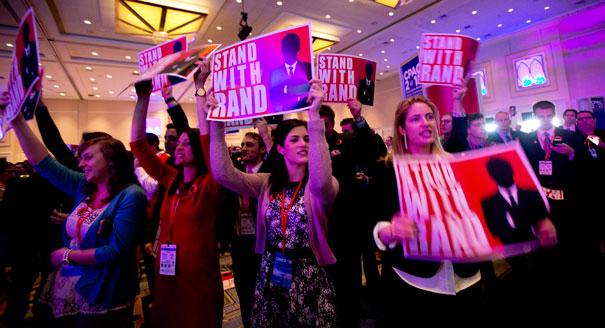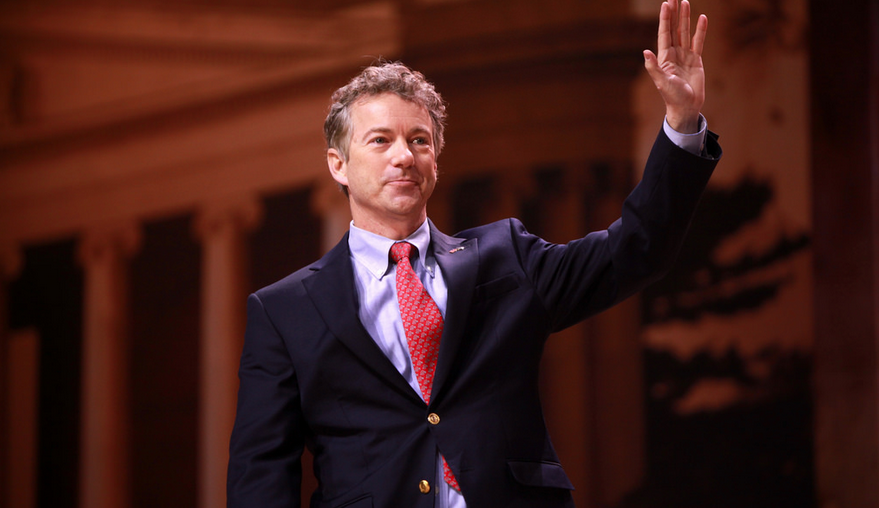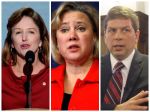Senator Rand Paul at CPAC 2014 (Photo: Gage Skidmore)
Videos by Rare
In 2010, Mike Huckabee boycotted that year’s Conservative Political Action Conference, telling Politico “CPAC has becoming increasingly more libertarian and less Republican over the last years.”
Less Republican? What did Huckabee mean?
Until the rise of the tea party movement, conservatives weren’t talking much about small government. In fact, at CPAC 2008 only one major speaker even addressed budget and economic issues.
The website OnTheIssues.org highlighted quotes from CPAC 2008 according to subject. Here’s a screenshot from their “Budget & Economy” section:
 Ron Paul was the only speaker at CPAC 2008 to even address big government.
Ron Paul was the only speaker at CPAC 2008 to even address big government.
This is not surprising, considering that a Republican administration had just oversaw the largest expansion of government in American history, at that time.
But plenty of speakers in 2008 wanted to talk about the issue that primarily defined Bush-Cheney: Foreign policy. Here’s a screenshot of CPAC 2008’s “War & Peace” section:
 This year at CPAC, some Bush-Cheney leftovers still had their “Islamofascists” panel, but across the street for only about 100 people. Senator Marco Rubio gave a speech on Thursday focused primarily on the need for America to be the world’s policeman.
This year at CPAC, some Bush-Cheney leftovers still had their “Islamofascists” panel, but across the street for only about 100 people. Senator Marco Rubio gave a speech on Thursday focused primarily on the need for America to be the world’s policeman.
Rubio also only received 6 percent in the straw poll this year. Last year he got 23 percent.
As for Rubio’s foreign policy views, 52 percent of CPAC participants in the straw poll this year said American should do less around the world. A majority, or plurality, of conservatives supported legal marijuana. There were panels on ending mandatory minimum sentencing and prison reform. Pro-gay marriage views were expressed from the main stage. No one sang the praises of waterboarding and torture this year, but some did defend Edward Snowden. There was no Muslim or immigrant bashing, but there was a minority outreach panel (poorly attended, but it’s a start).
Unlike the pro-Patriot Act Bush years, an overwhelming majority (78 percent) at CPAC 2014 opposed government spying on citizens. Unlike the “big government conservatism” of CPAC 2008 and prior, this year there were actually panels about making government smaller and reducing the debt.
In 2010, Mike Huckabee complained that CPAC was becoming too libertarian and less Republican. He was right.
And thank God for that.
 As more Americans than ever list growing government and debt as a primary concern, are war-weary, fear the loss of civil liberties and are more accepting of gay marriage and marijuana legalization—there is very little about the old Republican brand that Huckabee misses that appeals to the modern American electorate.
As more Americans than ever list growing government and debt as a primary concern, are war-weary, fear the loss of civil liberties and are more accepting of gay marriage and marijuana legalization—there is very little about the old Republican brand that Huckabee misses that appeals to the modern American electorate.
But on each of these issues—including abortion where Americans are steadily moving in a pro-life direction—only libertarian Republicans effectively address the GOP’s need to expand.
From a partisan standpoint, the Republican Party desperately needs more youth, minorities and independents. Only the libertarian Republican brand addresses each group in ways that grow the party.
From a general conservative standpoint, what is the reason for even supporting the GOP if they aren’t serious about reducing the size and scope of government—something that also enjoys wider support with a majority of Americans than at any time in recent memory?
Though dismissed by liberal critics and the old GOP guard, perhaps libertarianism has been the dominant force at CPAC the last few years because libertarian conservatism is the only philosophy that makes sense in modern America?
To dismiss CPAC’s now constant libertarian tilt as just a bunch of kids is to ignore that young people have dominated every CPAC for the last half century. It is also to ignore the fact that it was throngs of young people passionate about “extremism in the defense of liberty” who helped create the conservative movement more than a decade before CPAC existed.
An editorial in the August 1960 edition of National Review described the conservative youth activists who agitated to get Barry Goldwater on the ballot at the Republican National Convention that year with presidential nominee Richard Nixon:
Youth was everywhere at the Republican convention. Youth managed the various candidates’ booths. Youth waved the posters. Youth held the convention parade, and it was youth, primarily, that staged the Presidential demonstration Wednesday night … Lots of the young people had no ideological interest, they had come … well, because their family was Republican … But those who were serious, the ones who will be working hardest to guide the Republican Party in the future, were conservatives: and most of them Goldwater fans. They passed out 15,000 Goldwater buttons, handed out literature, rallied inside and outside the amphitheater.
The same young people who show up every year at CPAC to eagerly vote for Rand Paul in the presidential straw poll, as many did for his father in years’ prior—who hold signs and wear shirts and are just excited to be there—are not just some fluke or curious aside.
They also will not be young forever.
Like the youth who fueled Goldwater and later, Reagan’s campaigns, these young libertarians could very likely be the future of the conservative movement. CPAC each year is but one small indicator of this.
The greatest indicator is the shifting attitudes of a majority of Americans and how the conservative movement plans to address new realities. The old Republican Party of the 2000s that Mike Huckabee misses just doesn’t make sense anymore, on multiple levels, in today’s political and cultural environment.
But a newer Republican Party that emphasizes the philosophy of liberty and less government could become the dominant political party in the United States.
A more libertarian Republican Party could win again.



